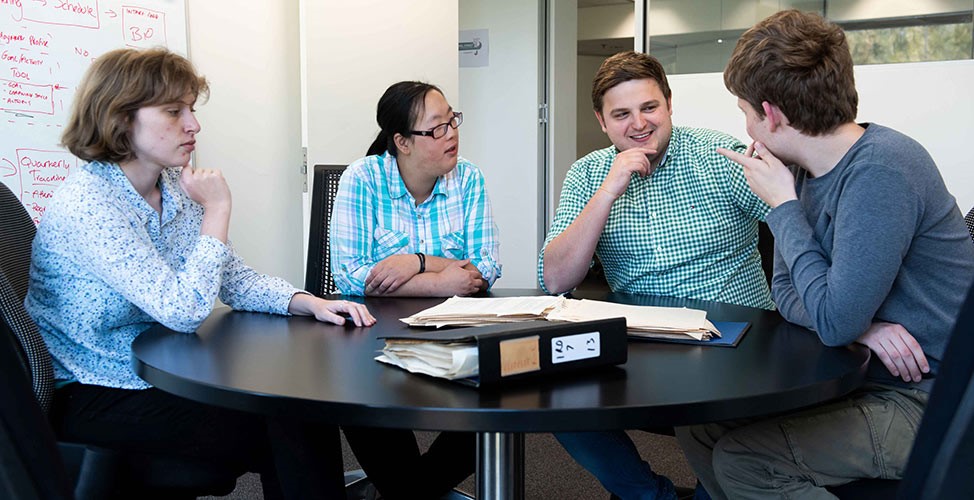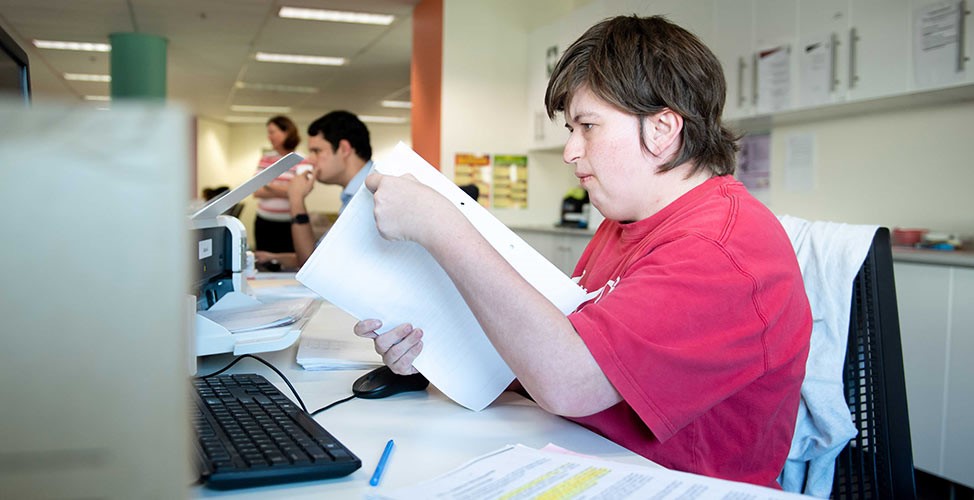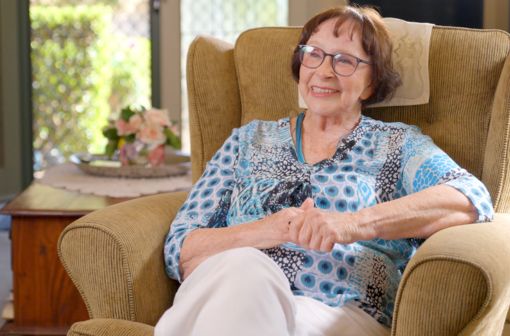“In the bigger picture, it’s such a waste that we have all these people who have incredible talent stuck at home; it’s important that we harness these skills and understand these people can add incredible value to the workforce.”—Paul Brown.
Key points
- Jigsaw has grown into a business that helps organisations manage their data and has created training and employment opportunities for more than 150 people with disability.
- The Australian Unity Foundation enables Australian Unity’s business to support community organisations through a series of grants.
- When Jigsaw first received a foundation social enterprise grant in 2017, it was able to buy more equipment to help its core business.
Paul Brown had worked in disability employment and education for many years and was growing frustrated at the lack of change.
“The older models are so rigid that they don’t work for the majority of people; there hadn’t been any fresh ideas in this space for a long time,” says Paul.
“I wanted to do something about it, starting with employing people and understanding what the challenges were.”
So, in 2014, Paul and Laura O’Reilly, his co-founder of parent company social enterprise Fighting Chance, set up Jigsaw, a document and data management company that helps organisations move to a paperless environment.
“We’re focused on making data more secure, accessible and set up for the future of analytics,” says Paul—but there’s more to the business than that.

“There are close to half a million people with disability who are currently out of work and should be in the workforce,” he says.
“On top of that, the going rate for people with disability is $3 per hour within Australian Disability Enterprises (ADE). The government-funded ADE model supports and employs 20,000 people with disability across the country. However, we don’t feel the wage is fair.
“Our mission is to lead Jigsaw into being a market-leading document and data management business and prove that you can truly run a commercial business while employing people with disability.”
Putting the pieces together
There are three arms to Jigsaw’s business: Jigsaw Learning, which provides practical training and work experience; Jigsaw Outsourcing, where people with disability are employed on award wages; and Jigsaw Temps, the latest offering, which helps those who have reached their capacity at Jigsaw to secure external work.
“For individuals, this is about having a sense of purpose, independence and a wage,” says Paul.
“In the bigger picture, it’s such a waste that we have all these people who have incredible talent stuck at home; it’s important that we harness these skills and understand these people can add incredible value to the workforce.”
Jigsaw has grown into a business that helps organisations manage their data and has created training and employment opportunities for more than 150 people with disability.

Working together
The Australian Unity Foundation enables Australian Unity’s business to support community organisations through a series of grants.
When Jigsaw first received a foundation social enterprise grant in 2017, it was able to buy more equipment to help its core business.
“The grant came at such an amazing time, because we’d just won a lot of new business and the workload tripled,” says Paul.
“Extra equipment helped us wear that growth. It also provided an additional 10 to 20 jobs for people with disability.”
“The Australian Unity Foundation was able to see the social impact the equipment created. So, when they changed their grant structure to two-year partnerships, we got a call.”
In the coming two years, the Australian Unity Foundation and Jigsaw will work together to expand Jigsaw Temps.
“We’ll hire someone to head that part of the business,” says Paul. “We’ll work hard to get the structure right, build the technology to help us manage and track the impact, and place more people into businesses that are interested in employing a more diverse workforce.”
Disclaimer: Information provided in this article is of a general nature. Australian Unity accepts no responsibility for the accuracy of any of the opinions, advice, representations or information contained in this publication. Readers should rely on their own advice and enquiries in making decisions affecting their own health, wellbeing or interest. Interviewee names and titles were accurate at the time of writing.


